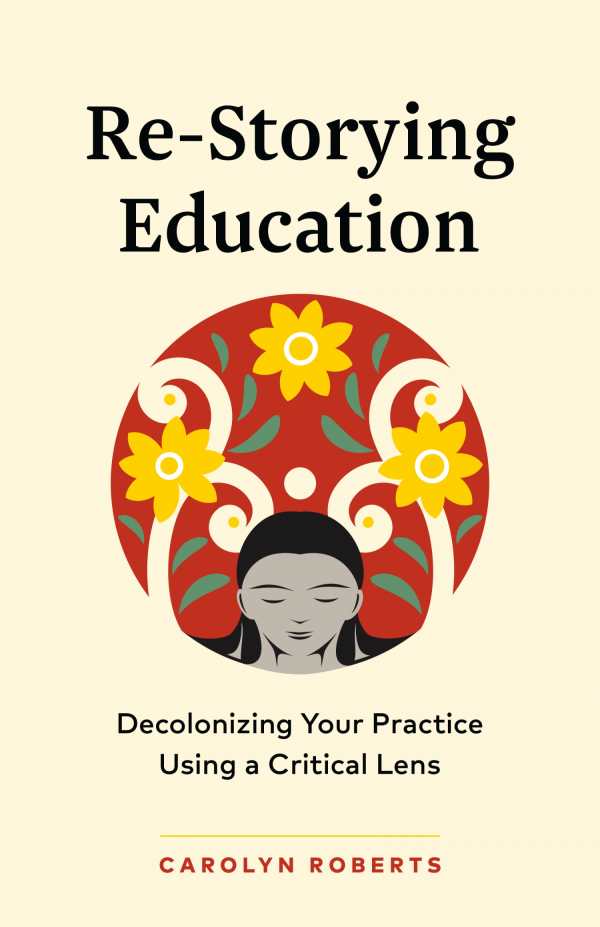Re-Storying Education
Decolonizing Your Practice Using a Critical Lens
- 2024 INDIES Finalist
- Finalist, Education (Adult Nonfiction)
Re-Storying Education is a paradigm-shifting educator’s manifesto with guidance for including Indigenous knowledge, culture, and history in classrooms.
Longtime educator, administrator, and storyteller Carolyn Roberts builds upon Indigenous history, her own ancestry and experiences, and previous research in Re-Storying Education, a resource for educators at all levels who seek to support Indigenous students in a way that respects their culture and repairs harms.
Warm and inviting, the book begins with a “welcome” in lieu of an introduction. It introduces educators to “rebuild[ing] a relationship to education and to the stories we have been told.” Drawing on Roberts’s extensive background in K-12 public schools and preservice education, as well as legislation and legal concepts, research findings, and histories of harms to Indigenous people, its work is thorough. It devotes space to defining key terms, including colonization, historically silenced, and IBPOC, infusing them with real meaning to maximize understanding. And its chapters open with epigraphs, performance and music video playlists, and clear introductory paragraphs; they’re well divided within and end with questions for reflection and resource lists. The book’s claims are well cited throughout.
There’s an autobiographical element to the book, which begins by explaining Roberts’s ancestry, which is divvied up into terms of full and part “Indian Status” and the impact those categories had on individuals’ cultures and rights. This work is done alongside a broadening history of settler harms to Indigenous people in Canada, including government systems intended to assimilate and erase Indigenous cultures, knowledge, and people, including residential schools and the Sixties Scoop, whereby white families were given Indigenous children to adopt. (Roberts was one of those children and writes, “My children are the first children in my family that have not been stolen from their parents by the government.”)
The book takes care to show how this history plays out in classrooms and curricula—via identifying facts being hidden or missing in lessons, cultural appropriation, and the selection of classroom resources. Two themes weave throughout its recommendations, both drawing on the expertise of others: Verna Kirkness and Ray Barnhardt’s inviting, supportive model of the four Rs within higher education (respect, relevance, reciprocity, and responsibility), and Rudine Sims Bishop’s image of mirrors and windows (the first reflecting the students’ lives and the second as a view into the lives of others). Further, it prompts educators to come up with a “decolonization lesson plan” that builds upon their self-reflection, drawing on existing lesson plans and asking critical questions regarding whose stories they tell and what’s missing from them.
Re-Storying Education is an accessible yet challenging teacher’s resource that exposes entrenched harms to Indigenous students.
Reviewed by
Lynne Jensen Lampe
Disclosure: This article is not an endorsement, but a review. The publisher of this book provided free copies of the book and paid a small fee to have their book reviewed by a professional reviewer. Foreword Reviews and Clarion Reviews make no guarantee that the publisher will receive a positive review. Foreword Magazine, Inc. is disclosing this in accordance with the Federal Trade Commission’s 16 CFR, Part 255.

